Or, why climate policy is one big fudge
Nota de la redacción: Normalemente en Desde el Exilio no publicamos artículos en inglés. Y si lo hacemos, proveemos una traducción. Este texto de Alberto Zaragoza, que también será publicado en Wattsupwiththat, es tan completo y extenso que merece su publicación sin tocar.
Anyone who has been involved in a few arguments, online or off, will have seen some version of the following fallacy:
- Thing X is (generally considered) good.
- There is some (unbelievably weak) evidence that doing Thing Y might increase X a little (at a jaw-dropping cost).
- Therefore, Thing Y has to be done – and anyone who expresses reservations is a scumbag who opposes X altogether.
Some will say this is just the usual false dichotomy: either you’re with me, or you’re against me. I would say it’s a specific instance of that. You could call it the fallacy of the absolute: either you are with me absolutely, or you aren’t with me at all.
The more emotional a topic is, the more likely people are to fall for this fallacy. In my experience, you usually encounter it in healthcare, education and military issues.
And in climate, of course.
What is the climate debate about?
It’s not about whether carbon dioxide is a greenhouse gas, or whether human actions are behind the rise in carbon dioxide concentrations, or whether the greenhouse effect is real. All of these points are well established and very few people would contest them. Of course you can never have absolute certainty on any complex scientific matter, but you can have enough certainty.
(That these points are accepted by almost everyone in the debate doesn’t keep some commentators from using them as strawmen. For example, a scientist who works on satellite temperatures recently said that ‘without including greenhouse gas changes in the climate models, you cannot get the amount of warming that we see’. Gee, what did he expect?)
One thing: throughout the text I refer to carbon dioxide even though there are other manmade greenhouse gases. I explain later why CO2, and in particular CO2 from fossil fuel combustion, is what really matters. If this bothers you, well, mentally replace CO2 with GHG and you’re done.
The scientific debate has thus focused on:
- How much warming are we going to get from additional carbon dioxide? This is usually framed in terms of how much warming will happen as result of a doubling in its concentration, i.e. climate sensitivity. A related debate is whether the warming trend seen since the XIX century has been influenced by natural factors, or perhaps manmade factors not related to CO2.
- What are going to be the effects of this warming?
If you don’t know point A it’s impossible to figure out point B. But the converse is not true: knowing how much we’ll warm does not mean you know what effects that warming will have. As a matter of fact, it’s hard to say what have been the effects of the roughly 1ºC increase in global surface temperatures seen in the last 150 years.
However, the scientific debate has become irrelevant to some extent, as politicians decided about 20 years ago to reduce CO2 emissions, or at least to claim they would try to do so. After reading about the issue for several years, I’ve seen very little evidence that scientific developments are moving the political needle – in any direction.
Thus, the discussion on whether we should do anything about CO2 emissions has largely become the domain of blogs and scientific journals rather than of political meetings. Yes, I’m oversimplifying here, but you’d be hard-pressed to find a developed country that does not claim to be doing its best to reduce CO2 emissions. Certainly, no one in Paris argued against the policy itself. In that sense, emission reductions have become as politically invulnerable as pension or education spending – hence the absolutist fallacy I mentioned before.
Unfortunately, skeptics have remained so fixated on the whether part that they’ve largely forgotten about the how. That means they often point out the benefits of CO2 fertilization, the evidence for low climate sensitivity, etc. Which is all fine and dandy, but means they often forget to point out that, even if one wants to reduce CO2 emissions, the policies being taken are absurd anyway.
And even more unfortunately, the people who know enough about the issue tend to fall squarely either into the skeptic or the warmer camp; many in the latter side are also aware of how wrong-headed the policies are but prefer to say nothing, perhaps out of a desire to maintain ‘a unified front’.
That’s what this article is about: climate policies. Just because some far-away goal sounds good, doesn’t justify taking any stupid action in its pursuit.
Which takes us to…
A very incomplete list of stuff that is not necessary to reduce CO2 emissions
- Cutting CO2 emissions does not require an energy efficiency standard for refrigerators
- Cutting CO2 emissions does not require another energy efficiency standard for dishwashers
- Cutting CO2 emissions does not require another energy efficiency standard for microwave ovens
- Cutting CO2 emissions does not require another energy efficiency standard for set-top boxes
- And lest I forget about clothes dryers
- Cutting CO2 emissions does not require another energy efficiency standard for homes
- Cutting CO2 emissions does not require another energy efficiency standard for commercial buildings
- Cutting CO2 emissions does not require banning vacuum cleaners above 1600 900 watts
- Cutting CO2 emissions does not require a hellishly complex set of fuel standards for automobiles
- Cutting CO2 emissions does not require a mind-bogglingly complicated mandate on how many cars must be fuelled by hydrogen and electricity
- Cutting CO2 emissions does not require awarding grants for the purchase of heat pumps
- Cutting CO2 emissions does not require banning oil heating
- Cutting CO2 emissions does not require banning electric heaters
- Cutting CO2 emissions does not require another energy efficiency standard for natural gas furnaces
- Cutting CO2 emissions does not require banning incandescent lightbulbs
- Cutting CO2 emissions does not require regulating pub temperature (yes I said pub)
- Cutting CO2 emissions does not require forcing utilities to buy all the power generated by solar residential generation
- Cutting CO2 emissions does not require forcing electricity buyers to pay a higher price for renewable kilowatts than for other kilowatts
- Cutting CO2 emissions does not require mandating how much electricity utilities distribute must come from renewable sources
- Cutting CO2 emissions does not require mandating when (or if!) electric utilities must phase out coal
- Cutting CO2 emissions does not require a bizarre system to cap emissions and trade emission permits, in which the ‘traded’ permits are in fact awarded for free
- Cutting CO2 emissions does not require a mandate on how much CO2 the average car must emit by 2020
- Cutting CO2 emissions does not require eating insects
- Cutting CO2 emissions does not require taxing meat
- Cutting CO2 emissions does not require banning bottled water
- Cutting CO2 emissions does not require banning plastic bags
- Cutting CO2 emissions does not require paying people €10,000 when they trade in their diesel car for an electric one. (Gasoline cars emit something like 90% less actual pollutants than diesel ones, so if that’s the reason for the subsidy I suppose they deserve €9,000)
- Cutting CO2 emissions does not require awarding $7,500 tax credits to electric vehicle buyers
- Cutting CO2 emissions does not require awarding $5,000 rebates to the buyers of these vehicles, either
- Cutting CO2 emissions does not require mandatory charging stations in every new home
- Cutting CO2 emissions does not require another efficiency standard for electric motors
- Cutting CO2 emissions does not require subjecting every oil and gas pipeline to a climate test (whatever that means)
- Cutting CO2 emissions does not require taxing cars so much that their price doubles (or triples)
- Cutting CO2 emissions does not require making cars pay to enter the city centre. Yeah, in theory it’s done to avoid ‘congestion’ – but apparently your car does not cause congestion if it does not emit CO2!
- Cutting CO2 emissions does not require banning cars from city centres
- Cutting CO2 emissions does not require letting electric cars park for free
- Cutting CO2 emissions does not require worthless light rail projects
- Cutting CO2 emissions does not require a high-speed rail boondoggle
- Cutting CO2 emissions does not require taxing gasoline until 2/3 of the price is tax
- Cutting CO2 emissions does not require divesting from fossil fuel companies
- Cutting CO2 emissions does not require fuel pump stickers warning of damage to the planet
- Cutting CO2 emissions does not require cracking down on air travel
- Cutting CO2 emissions does not require blocking coal exports
- Cutting CO2 emissions does not require a $10-a-barrel oil tax
- Cutting CO2 emissions does not require a Green Corruption Climate Fund
- Cutting CO2 emissions does not require a yearly circus for politicians and their cronies
- Above all, cutting CO2 emissions does not require transforming the world’s economic system
You know the website, Number Watch. The author hilariously compiles the list of things that cause cancer, as well as the list of things caused by global warming.
Fittingly, it seems there is just as big a number of things you can do to prevent global warming. Nice!
Now talking seriously, some of those programs may make sense for other reason. Me, I’m all for taxing use of roads and streets, depending on how much each vehicle ‘uses’ them both in terms of congestion and deterioration; however that’s unlikely to happen as it would largely hurt those heavy buses which cause far more pavement deterioration per passenger-mile than my selfish, individualistic scooter, not to mention autos. (In fact, in comparison with motorbikes buses also cause more traffic congestion – but I’m veering off-topic).
And while other justifications are often used for the above-mentioned programs, nearly always the CO2 excuse comes up; sometimes it’s a sidekick and sometimes the protagonist. And it’s true that one can usually expect these programs to reduce emissions. But here’s the thing:
Every emissions reduction these programs accomplish, could have been accomplished by a CO2 tax
Hold that thought. All the mandates, the standards, the endlessly-debated subsidies and counter-subsidies… all of it could be replaced with a CO2 tax.
Which has some implications.
Advantages of a carbon tax over a regulatory approach
Let me first say that such a tax would be levied on the fuel itself. The carbon content of natural gas is 75%, that of oil is 85%; ethane, butane, propane and pentane fall somewhere in between. The carbon content of coal varies from 50 to 90%.
And there are good statistics about how much of each is burnt (except perhaps for coal, particularly in developing countries). The molecular mass of carbon is 12, while that of carbon dioxide is 44. This means that in order to know how much CO2 a given amount of fossil fuel will release upon combustion, you simply have to:
- Take the mass of said fuel
- Multiply by around 0.8, depending on the specific fuel, to get the amount of carbon inside
- Then multiply by 44/12 = 3.67, to convert from carbon to carbon dioxide
That’s it. Burn a pound of oil and it will release 1 x 0.85 x 3.67 = 3.12 pounds of CO2 into the atmosphere. Don’t burn it and the CO2 won’t get released. Simple as that.
How would such a tax work? An ideal solution for free-market lovers would be to make the tax equal to the ‘externalities’ or social costs of CO2. While great in theory, this proposal is a no-go in practice because nobody has a clue as to the social cost of CO2, and the estimates have so many fudge factors as to be worthless. Remember what I said at the beginning: we don’t know how much warming will come from a given amount of CO2 release, and even if we did, we wouldn’t know what the effects would be. And even if we knew both things, the calculation of these costs would run into the problem of how far into the future are you going to look; i.e., should damages that will presumably happen by the year 2500 be counted in the current cost of carbon?
Economists have the right to come up with one estimate after another, but that doesn’t mean the rest of the world should take notice.
Now let’s take a look at what economic impacts this tax would have:
- It would make coal less competitive compared to natural gas
- It would make all fossil fuel sources of electricity less competitive when compared to nuclear and renewables
- It would make combustion vehicles less competitive compared to electric vehicles. Not just electric cars or motorbikes or trains or trucks or buses or lawnmowers but all of them.
- It would make gas, LPG and oil heating less competitive when compared to electric heating or heat pumps
- It would make driving a car less competitive when compared to mass transit, walking or cycling
- It would make in-person meetings less competitive when compared with video conference (or email, or instant messaging)
- Ironically, it would make commuting more competitive when compared to telework – by making home heating, and thus staying home during work hours, more expensive
- It would make air travel less competitive when compared to ship travel
- It would make products sourced from faraway lands less competitive when compared with locally-sourced products
- It would make living far from work less competitive when compared with living close to work
- Etc
You get the point: such a tax would create ripple effects across all the economy, shifting or skewing all activities towards less carbon-intensive ways. Rather than micromanaging every little bit of energy use (or every little thing people do in their daily lives), you set up the tax and you’re done. And it’s not a logistical issue because these fuels are already paying taxes – the carbon tax could be a surcharge on the taxes already paid by gasoline, natural gas, etc. Compare this to the bureaucratic nightmare involved in testing the energy consumption of different appliances, certifying said appliances, applying for emission permits and trading them and…
Of course fossil fuels will never be completely phased out. There will always consumers who really, really, really need to use fossil fuels and are willing to pay for it. Nobody knows what is the ‘ideal’ low-carbon economy, and it’s nobody’s right to decide. Only consumers can know what is best for themselves.
Additional advantages:
- It’s more transparent. With the litany of regulations I mentioned before there is no way to know how much ‘climate policy’ is costing us.
- It allows comparisons across territories. It’s hard to know who is ‘doing more’ to cut CO2 emissions in the current system. Is it the country with the feed-in-tariff, the one with net metering, the one with an electric car mandate, or the one with nuclear power? On the contrary, if a particular region of a particular country is especially concerned about emissions it can increase the tax. Just like it works with fuel taxes.
- It allows democratic participation. While in theory anyone can spend a month reading about the way the European Union Emissions Trading Scheme works, and figuring out how one can file a complaint or take some action, virtually nobody has that kind of time and perseverance. A good counter-example is the US federal fuel tax, which is determined by Congress. Gas tax debates are widely reported upon by the media, voters can directly write to their representatives, etc. It’s not perfect but it beats obscure regulations by a mile.
- It avoids the rebound effect, which is a problem for all the efficiency standards.
- You can clearly see whether the policy is working or not. With a thousand regulations in place, it’s hard to know what’s the driving factor behind reduced CO2 emissions.
- It avoids loopholes, which seem to happen every time you write a regulation. Example: UK electricity policies inadvertently favor diesel generators.
- Above all, it’s fair. CO2 is CO2 and the atmosphere cares not whether it came from a stove or Cordell Walker’s pickup truck. Taxing one more than the other is both immoral and absurd.
In passing, I will note that not all fossil fuel mass is combusted; some of it becomes feedstock for the chemical industry and so does not release its carbon. Additionally, some coal is used not to generate heat but to make coke, which in turn makes steel – again, it’s not burnt so it does not release CO2. On the other hand, there is a source of CO2 that is well-measured and is not combustion: cement manufacturing. This is so because, regardless of how much energy is used or fuel is burnt in the process, the chemical reaction itself releases CO2.
So a crude CO2 accounting would simply measure fossil fuel combustion in terms of oil, gas and coal; after all, the two missing adjustments are small and run in opposite directions. But a more sophisticated measure would tax end-user fuels (natural gas in the case of power plants, gasoline in the case of cars, and so on); this would avoid fossil ‘fuels’ that end up as feedstock rather than fuel. As for cement, its production is centralized into relatively few sites and the amount of CO2 released from its reaction is well understood, so taxing it wouldn’t be a problem.
How would the ‘success’ of this tax be measured?
A big red flag telling you the politicians setting emissions ‘targets’ are liars is the very targets they set. Let’s be clear: the only meaningful way to measure progress is the CO2 intensity of GDP. Every target that ignores GDP is useless.
In practice, what these GDP-ignoring politicians and pundits are saying is that the ‘benefit’ (emission reductions) is so important that it shouldn’t be compared with costs at all. So if you meet your emissions target you declare success, even if GDP plunged by 90% in the process. Again, the absolutist fallacy – thing X is good, so anything that helps accomplish X is good. Well, no – not everything that would contribute towards X (emissions reductions, in this case) is desirable.
Now I’m not accusing anyone of actually planning for economic degrowth – I’m just reporting what they say. And to be fair, the ‘degrowth’ idea has not actually been put forward by any politician or notable pundit that I know of, being instead promoted by fringe media.
Even if you’re an anti-consumerist who believes our capitalist habits are inherently bad, you must admit that setting targets based simply on whatever emissions there were in 1990 or 2005 or whenever is massively unfair, because different countries have different rates of population and GDP growth (or degrowth). Compare Japan:
With Singapore:
Obviously, asking Singapore to match Japan’s emissions reduction is stupid. It would impose a far heavier burden on the former than on the latter. No wonder European countries with stagnant or declining population (and even GDP, in some cases) prefer to talk about absolute emissions rather than CO2 intensity! For example, Italy’s GDP is at the same level as it was in the 1990s; I suppose the CO2-obsessed would interpret a decline in emissions during this period as a sign of success, but most Italians probably disagree.
Finally, I will comment that sometimes you hear declining CO2 intensity of GDP as ‘evidence’ that climate policies are working. This is nonsense. The CO2 intensity of GDP has been decreasing since records started because energy intensity of GDP has been decreasing for the same time. CO2 intensity of GDP will decline even if you do absolutely nothing about CO2. The question is not whether CO2 intensity will decrease, but rather how much.
(An additional factor: electricity is rising as a share of total energy consumption. Since fossil fuels’ share of energy supply is much lower for electric than for thermal energy, where they have nearly 100% share, this necessarily means CO2 intensity will decline over time. Nevertheless this effect is small compared to declining energy intensity).
I recommend that anyone interested in the issue checks out this link, with troves of data going back to 1980 (i.e. long before any climate policy was enacted). Now, I won’t claim to have made a thorough analysis here, as that would take a long time and make an already-long article much longer. But from what I’ve seen there doesn’t seem to be a big difference between countries that constantly brag about their CO2-fighting efforts (such as those in Europe) and those that are perceived to be lagging in this respect (such as the US); both are seeing CO2 intensity decline by 1 or 2% a year. Nor is there a ‘break’ in the 1990s, i.e. a point at which CO2 intensity started to decline much more rapidly. In short, there is little evidence that CO2 reduction efforts are achieving anything.
Lame excuse #1: bu-bu-but carbon budget
One reason so many climate scientists fall for the absolutist fallacy is that they’ve become obsessed with the idea of a carbon budget. It works like this:
- We don’t know climate sensitivity, i.e. how much the world’s surface will warm as a result of a doubling in CO2 concentrations. Therefore, we’ll assume it’s 3ºC.
- We don’t know how much of the CO2 released into the atmosphere will remain in the atmosphere (i.e. the airborne fraction) as opposed to the oceans or biosphere. What little evidence we have points towards a declining fraction, so we assume it will increase in the future.
- We have no idea about future levels of non-CO2 GHGs, mainly methane. Whatever they do, it will be worse than we thought.
- We have no idea what the effects of this warming will be. Most critically, there is no way to know what sea level will do without knowing what the ice sheets will do. Therefore, we assume they’ll collapse above a certain temperature.
- We’ll perform some calculations showing that if we continue burning fossil fuels for ten years more, we’ll have emitted so much CO2 that a 2ºC temperature increase is ‘inevitable’.
- Of course, nobody outside the climate blogosphere cares about the 2ºC targret. So to get press attention we’ll extrapolate things out to the year 10,000 and claim Manhattan will be underwater if we don’t Do Something™.
Yeah. After you’ve read a few of those catastrophe papers, you grow more than a bit cynical.
There seems to be a particular obsession of late with sea level. No wonder: with weather events stubbornly refusing to show any trend in spite of the ‘unprecedented’ warming, many in the warmer side seem to have pinned their hopes on an Antarctic collapse to justify drastic ‘climate action’. Usually the division of labor means scientists write worried blog posts proclaiming Something Must Be Done™ while activists call on more towns to ban plastic bags.
The issues with papers in the sea-level-catastrophe subcategory could provide material for another article as long as this one, but they can be summarized in that there is only a very loose connection between global temperatures and ice sheets. Just because sea levels have risen 120 meters since the Little Ice Age, and temperatures have risen about 4º C at the same time, doesn’t mean you can assume a relationship like an Ice Age Unit exists between sea levels and temperature.
For a start, the world’s ice only has 70 meters of water left, so that’s all we can melt regardless whether we heat up 2ºC or 20ºC. Second, temperature trends where the ice is (and 90% is in Antarctica, with most of the rest in Greenland) may be very different from the global trend; indeed Antarctica seems to be warming very little. Third, the relationship between temperature (and geology) and ice is more complicated, e.g. warmer temperatures may lead to more snow precipitation which increases ice mass. All this is exemplified by a period known as the Younger Dryas during which temperatures fell by 2º to 6º depending on who you ask (that’s 1 Ice Age Unit if you’re counting); it turns out sea levels kept rising – slower than in the previous or posterior periods, but much faster than now.
(As for sea level rise from thermal expansion, forget it – it’s about one milimeter a year).
Of course the scientists will tell you: no, no, we don’t assume something as dumb as an Ice Age Unit exists. We have a model with many carefully considered parameters, we take into account all factors, etc etc. Cool, but how many models expected Antarctica to still be gaining ice after one degree of warming?
An additional word is needed on the concept of a ‘budget’. A real-world budget is not an absolute limit – real projects almost always go over budget, whether the intended action is building a bridge or going to college. Rather, a budget is best understood as a set of resources of equal cost; after the budget is depleted, using up new resources is more expensive.
Imagine a company with a million-dollar budget for the year. It runs out on December 1st. What can they do?
- Use their savings. But these are likely locked up in multi-year deposits; the company will thus lose whatever interest hasn’t already been paid on the deposits, plus it may have to pay an early-termination fee.
- Avoid paying (or delay payment to) some suppliers or employees. This will ruin the company’s reputation.
- Sell assets. First this implies an organizational expense. Second, since the company needs the money immediately, in the rush of selling it will likely fetch a lower price for its assets than it deserves.
You get the point: while dollars can still be obtained after the budget has ‘run dry’, they have a much higher cost than if you’re simply using the budget itself. And the more you go over-budget, the more these costs increase.
A budget is not a limit. Rather, it is a point after which costs (lost interest earnings, bank fees, reputation) escalate faster than benefits (the dollars you can spend). In the case of CO2, the benefit is simply the ability to emit it, while the costs are sea level rise, (theorized) crop loss and so on. If the scientists showed that there is a point after which costs increase non-linearly, a point after which the ice sheets start to collapse and agricultural yields start to decline ever-more-steeply and so on, the word ‘budget’ would have some meaning.
They haven’t shown this about the 150 years of warming we’ve already had. I’m not holding my breath for solid evidence to appear about the next 150 years.
And if the only point of the ‘budget’ is to spur action, well, the same thing can be done pointing to CO2 intensity of GDP. Indeed, if the reduction in CO2 intensity achieved with let’s say a tax of $50 per ton of CO2 is less than what you desire, you just raise the tax. You could even set this up as an escalator, for example indexing the CO2 tax to inflation + 2% per year. If the reductions in CO2 emissions are ahead of what you expected you can relax the escalator. If the reductions in emissions lag behind your expections you can make the escalator steeper.
It’s not so complicated, is it?
Lame excuse #2: bu-bu-but Republicans
This one is so transparently untrue, I can only assume the people still using it want to embarrass themselves. Nevertheless it’s sure to pop up time and again in the future so let’s debunk it.
The narrative goes something like: if we just had the political will, we could tackle climate change. If the Republicans stopped opposing action, we would solve this problem. If the deniers stopped spreading misinformation, we would deal with this. Hell, there is even a paper purporting to show how this ‘disinformation network’ operates.
No doubt, this excuse can be applied to a carbon tax as well. ‘Republicans would never allow that! We have to set up regulations little by little because they oppose big action.’
To debunk this, click on George W. Bush’s Wikipedia page. Republicans love to hate Obama’s green policies but Bush Jr. has some green cred as well, which they would rather forget:
- Setting up the $25 billion Advanced Technology Vehicles manufacturing program
- Strengthening the ethanol mandate(probably the renewable policy most strongly opposed by oil and gas companies)
- Mandating wind energy while a governor in Texas
- No carbon tax, either as governor or in the Oval Office
Of course if you look outside the US this excuse becomes laughable. For instance, pretty much every country in Western Europe has been on board with aggressive CO2 reduction targets, at least nominally since the 1990s; Poland has strongly opposed these limits but it wasn’t a member until 2004. And yet, no carbon tax in the EU.
Nor in California, which thanks to CARB can essentially enact its own environmental laws. Hey, a Republican is to blame there as well.
Nor in Québec, which is in a similar situation to California. Lots of ‘pro-climate’ policies when a strong carbon tax would have sufficed.
Nor in China. Nor in Korea, nor in Japan or Taiwan. Republicans sabotaging the carbon tax everywhere.
In fact, whenever and wherever a carbon tax been instituted (Sweden, Australia, France), it only took aim at some CO2 sources, and functioned only as additional punishment. It never replaced other regulations.
In summary, it’s true that Republican politicians have mostly opposed a simple carbon tax – not because they’re Republicans but because they’re politicians. In other words, the issue is not a blanket opposition to CO2 reductions. Rather, they oppose a carbon tax because they hate transparency and accountability and lust for power and control – just like all politicians.
But what about methane and deforestation?
I didn’t label this counter-argument a lame excuse because I think it has some merit. This is what I talked about at the beginning of the text: while there are manmade greenhouse gases other than CO2, and manmade sources of CO2 other than fossil fuel combustion, they don’t really matter for policy.
First of all, if you’re wondering how much fossil fuels contribute to total manmade greenhouse gas emissions, this figure from the IPCC’s Assessment Report 5 will help you:
A couple important things are clear off the bat.
First, combustion’s share of total emissions has been growing over time, and by now must be higher than it was in 2010. So by getting rid of combustion we would get rid of nearly 70% of the problem, according to the IPCC.
Second: by the standard of CO2 intensity of GDP, the Kyoto protocol was a massive failure. Actual emissions growth accelerated from 1.3% a year before 2000, to 2.2% a year thereafter (and the portion related to combustion grew even faster); by contrast world GDP grew at about the same rate as before. To be fair, this disconnect seems to have been caused chiefly by booming Chinese coal consumption, not anything in particular related to Kyoto, but still: a global agreement must be judged by its global results. (The other side of the coin is that, to return to the mean after over a decade of breakneck emissions growth, you would expect several years of slower-than-usual emissions growth. Ludicrously, this totally normal phenomenon is now taken as evidence that climate policies are working).
But I’m doing readers a disservice by parroting the IPCC line. The truth is that non-combustion sources of greenhouse gases cannot be quantified, or attributed, or ‘tackled’ in any effective way.
I once saw a presentation by Richard Lindzen in which he said: whenever you see a hockey stick chart, look at the scale. To which I add: whenever you see a bar, look at the error bars. With that in mind let’s analyze the chart above.
CO2 FOLU represents CO2 emissions from ‘land use’, meaning chopping down trees and agriculture. It just happens that the error bars are bigger than the effect itself! In other words, CO2 from ‘land use’ is supposed to be 11% of total GHG emissions, but it may be as little as 4% or as much as 16%. But then again, even if you knew how much CO2 comes from ‘land use’, you wouldn’t know which land use. Where is the deforestation happening? Which trees store the most carbon? Which are the agricultural practices leading to extra carbon in the atmosphere? With manmade emissions at some 5 parts per million (ppm) a year, and land use emissions at only 0.5ppm, not even satellites can tell you – because natural emissions are 100ppm a year. Whatever our ‘land use’ emissions are, they get lost in the noise of natural emissions. These estimates you’ve seen about how much of the CO2 in the atmosphere comes from gardening? Useless.
CH4 means methane, which is just a technical name for natural gas. It also happens to be the other big non-combustion contributor to manmade global warming, purportedly making up 16% of emissions in 2010. I’m not totally sure how the IPCC has derived its error bars, but the estimates are again worthless because there are at least four big anthropogenic contributors to increased methane concentrations:
- Livestock, mostly meaning cow burps
- Rice cultivation
- Decomposition of organic matter (that’s why landfills can ‘produce’ natural gas)
- Oil and gas exploration, processing, storage and distribution
You can try and estimate how many cows are raised in China, how much rice is grown in Cambodia, how much methane is inadvertently released from landfills all over the world. When you have some certainty about your estimates you can report that.
But until then, the world is under no obligation to ‘act on’ methane. Because for all we know our actions may be completely useless.
To drive the point home, consider the totally unrealistic projections on methane levels the IPCC has embarrassed itself with over the years:
I’m not a cow scientist, but last I checked the bovine species didn’t stop burping in 1998. Nor did farmers around the world agree to stop growing rice. Nor did organic matter stop decomposing. The start-and-stop-and-start-again nature of methane’s rise suggests a big part of the emissions are cyclical. That in turn suggests they come from oil and gas exploration, which varies a lot from year to year and decade to decade – but methane leak rates will vary dramatically from one well or field to other. If you don’t know whether it’s the ones in Kazakhstan or the ones in Iran which are leaking a lot, well, you can do nothing. (And if you determine the bad guy is Kazakhstan… then what?).
Finally you have N2O, which is to say nitrous oxide. I’ll admit I just haven’t read enough to talk about this gas. Nevertheless, according to the IPCC it only contributed 6.2% of greenhouse gas emissions in 2010, and again the error bars are larger than the effect itself. As for the fluorocarbons, well, they’re an asterisk.
As for those claims about the meat industry contributing a huge chunk of the world’s greenhouse gas emissions: bollocks. They rely on estimates about how much methane is released from livestock and how much CO2 from the agriculture needed to feed that livestock; as we just saw both are extremely uncertain. Emissions from the burning of fossil fuels in the industry itself are small and declining as a share of total emissions, as you would guess simply by looking up ‘agriculture’ in a GDP chart. Eat a steak to celebrate.
(And as for planting trees to create ‘negative emissions’, first of all they cause warming because they absorb more sunlight than the rest of the surface. Yes, they absorb CO2 as well but I’ve yet to see any serious analysis comparing both effects over different timescales. Second, it’s almost impossible to tell how many trees have been planted, how many remain planted, and how much CO2 they’re absorbing).
Actual reasons they don’t want a CO2 tax: it would close their chiringuito
My scam detector goes off every time I hear the verb tackle. If I’ve learned one thing reading policy is that, whenever someone claims to be tackling a problem:
- to a large degree it is not a problem at all
- to the degree it can be considered a problem, it cannot be solved
- to the degree it can be solved, the person babbling about it has no interest in doing so – it would leave him out of a job
But then again, the scammer never claimed he would solve anything. He only talked about tackling.
Tackling obesity, tackling gender inequality in the workplace, tackling religious extremism, tackling bullying, tackling income inequality, tackling internet addiction, tackling social anxiety, tackling sexual dysfunction, tackling traffic congestion, tackling urban segregation, tackling digital illiteracy, tackling the cultural divide, tackling climate change.
You have to wonder, why don’t they just tackle unhappiness?
Snark aside, let’s consider what a carbon tax would do:
- It would make CARB, EPA, UNFCCC, UNEP, and a host of others largely irrelevant. Although these agencies are unlikely to be disbanded, there is no question that global warming has focused a lot of their efforts in recent years.
- It would actually lead to reduced fossil fuel consumption. The fossil fuel industry would rather join the fudge game and buy emission permits ‘generated’ by from some forest protection project in Ecuador than actually shrink itself, so they’re not big fans either. (Exxon claims to support a carbon tax, but I haven’t seen similar statements from other majors – by contrast BP, Shell and others have invested in ethanol, wind farms etc.).
- It would create a life crisis for some activists, who wouldn’t know what to do with themselves if they weren’t protesting something
- Perhaps most importantly, it would make a lot of ‘renewable’ and ‘green’ projects and subsidies completely pointless.
- It would make carbon accounting far clearer. The theorized 35% coming from non-combustion sources in practice acts as a fudge factor: if a government wants to claim it has been massively successful in reducing GHG emissions, all it has to do is revise historical emissions of non-combustion GHGs upwards and voilá! We reached our target! To get an idea of the level of confusion surrounding this issue check out this dissection of the UN’s data on per-country emissions. (Even after the revisions, as I pointed out in the comments section, it still absurdly shows more CO2 emissions from fossil fuels than in total – which implies negative land use emissions!)
My surmise about activists who don’t know what to do with themselves if not protesting is only a bit exaggerated. Consider Bill McKibben and 350. When asked why he opposed nuclear energy, he responded that he agreed it could play a role in mitigating climate change, but that if he admitted so in public ‘it would split this movement in half’. I was going to make a comment on his priorities, but he explained it himself very well.
Now consider the case of electric cars. There is little question that, if a carbon tax were to displace the $7,500 tax credit, the rebates, the €10,000 grant in France, etc. the demand for them would fall. And rightly so: an electric car in California gets subsidies worth about $5,000 per ton of CO2 avoided. Clearly, a puny $50/ton carbon tax isn’t going to cut it when it comes to electrifying transport. (This reminds me: why do electric cars get any subsidies in California, if gasoline and diesel already pay for emission permits? Oh, and the price is $10 a ton)
But what the pundits don’t get is that, perhaps, a world with reduced CO2 emissions does not need electric cars. Europe’s per capita emissions are about half those of America’s, but less than 1% of our cars are electric. Who are the bureaucrats to say what is the ‘right’ percentage of electric cars? Or how much energy storage must come from batteries, as opposed to pumped hydro or any other means?
If the bureaucrats were infinitely competent I would trust them over the market, but a look at their previous actions suggests they’re not. Just think of some of the policies implemented: they’re redundant even before setting up a carbon tax. For example, if emissions from power generation (and manufacturing) across the EU are already regulated by the emissions trading scheme, it does not make any sense for any single country to mandate emissions emissions beyond that (see Germany, Spain and the UK for examples of countries that follow the trading scheme and their own mandates on renewable energy). Such a move will simply reduce demand for offsets in said country, which will make the offsets cheaper – which means some coal-burning plant in Poland will be able to buy more. Stronger-than-average reductions in one country or industry will be matched by weaker-than-average reductions in other. Unless every country decided to go stronger-than-average, in which case the Emissions Trading System itself would become pointless (but don’t expect it to be phased out).
Or consider all the regulations targeting electricity consumption: to the extent the electricity supply has been decarbonized, these are simply pointless. Thus you can consider them 30% pointless in the US (80% useless in the state of Washington), 60% pointless in Spain, 95% pointless in France, 100% pointless in Norway, etc. US federal regulations apply everywhere, regardless how much nuclear or renewable electricity a state generates. The EU’s regulations apply the same way in every country – even though in many of them, very little CO2 is emitted when using electricity.
Now, an honest analysis has to talk about the limitations of a carbon tax. First, just because one country implements it, doesn’t mean others will follow. In other words, it suffers from the same problem as the Paris non-deal, which relies on ‘peer pressure’ to meet its targets. (Want to convince Saudi Arabia? Just use peer pressure!)
So it may be doomed from the get-go. But, if you actually show that you’re taxing fuels a given amount, you may convince some people (perhaps even foreign governments) that you are serious about CO2. Certainly, you’ll convince more than if you stage a meaningless smoke-and-mirrors exercise about carbon permits and similar nonsense.
The other limitation is cross-border leakage: if you tax CO2 emissions in the UK, maybe steel will production will simply move to China. Again, this is also a problem with the regulatory approach, e.g. ‘biomass’ power stations in the UK burning wood pellets brought in a diesel-fired ship from the US. The counterarguments are:
- As nations develop, manufacturing (and thus physical goods) becomes a relatively smaller share of energy consumption, with the share gains going to transportation, air conditioning, telecommunications, etc. Obviously the latter don’t suffer from ‘leakage’.
- Cross-border leakage, across all countries in the world, averages out. In other words, the UK may be ‘importing’ emissions from Chinese steel but at the same time ‘exporting’ them in the form of Jaguar cars. In the case of the EU, a carbon tax would likely be passed as a bloc measure, applying everywhere – and most of any European country’s trade is with other EU countries.
But yes, if you wanted to be totally sure, you would have to look at how much CO2 has been released in manufacturing imports.
And a few words are needed for the supposed ‘grand climate bargain’ on the carbon tax. The few words: it won’t happen. And if you want me to elaborate a bit more, first, while conservative writers may praise this measure, as mentioned before there is very little evidence that conservative politicians actually want a carbon tax to replace other measures; what evidence we’ve seen is that they dislike the transparency, accountability, and restraints on government it would bring as much as any other politician. Second: even if conservatives were for it, other politicians would not be. And the other politicians will always have the support of the ‘experts’ from UNEP, UNFCCC, etc. insisting on a ‘holistic approach’ (code for ‘doing lots of ineffective things’) to tackle climate change.
Anyway, it’s time to conclude this section. I’m not the first person to make these points. Hell, I’m probably not even the millionth. The bureaucrats have heard these arguments before. They’ve heard about the advantages of a carbon tax.
And these very advantages are the reason they hate it.
(Alright, before finishing I can’t resist mentioning a bizarrely sincere analysis of the issue by a ‘cleantech’ website. Basically, they argue governments don’t implement a carbon tax because the costs would be easily seen, so it’s better to simply mandate fuel changes. What they don’t say is whether the actual costs of the latter policy are less than those of a carbon tax. They don’t seem to have any problem with this let’s-say-uncommunicative strategy. And they’re wrong in saying that a $100/ton tax would be impossible politically – in Europe the gasoline tax is the equivalent of $200-300 per ton).
Just for kicks: politicians love to talk about ‘targets’ based on ‘pre-industrial’ temperatures…
…but there is no official definition of ‘pre-industrial’ times.
Rather, there are at least two widely-used baselines:
- The IPCC takes 1750 as ‘year 0’. This means that, to quantify the impact of man-made CO2 for instance, you take whatever level there was in 1750 as the ‘natural’ level, meaning there was 0 manmade CO2 in the atmosphere.
- Temperature datasets don’t have enough thermometer data going back to 1750, so they only publish global temperature series starting in the second half of the XIX century. So the baseline is the average for 1850-1900, or a similar measure.
Confused? Don’t worry, even senior climate scientists are. Anyway, what do the Paris negotiators mean when they say want to keep warming below 2ºC, starting from a ‘pre-industrial’ baseline?
They don’t say!
Nowhere does the Paris deal, treaty or whatever you call it specify what ‘pre-industrial’ means. If this has been specified in some adjunct text related to the deal, please point it out – I’d be happy to be proven wrong.
So, as if fudging emission data wasn’t enough, politicians can also fudge temperatures.
And the problem with baselines doesn’t stop there. Very often 2ºC is considered the ‘limit’ for safe warming, but many other times you will hear that warming causes benefits ‘up to’ 2ºC, presumably meaning losses exceed benefits after that (i.e. 2ºC is the point of no net benefit or loss). As illustrated by the following chart:
(Of course it’s absurd for a given level of temperature to cause neutral economic impact and at the same time be the maximum risk we can afford. This thundering contradiction is rarely pointed out).
The main source of this claim is a paper by economist Richard Tol, which is in fact a meta-analysis of different estimates of warming-induced economic impact (and which includes the chart shown above). While I cannot say anything about Tol’s other work, as I haven’t read it, this particular paper is junk. It turns out that the different estimates of warming’s economic impacts had different baselines, and Tol didn’t just for that. So while one estimate might expect a benefit at 1ºC and other might have expected losses for that same level, the papers would in fact be talking about different temperatures! Not that it mattered for the IPCC, which featured the paper quite prominently.
(Incidents such as this also debunk the notion of a ‘great conspiracy’ to promote alarmism on climate change. There is no hidden conspiracy, just bias and ideology in plain sight.)
So will an additional degree centigrade bring an underwater Statue of Liberty or endless prosperity? Whatever the answer, nobody knows, so it doesn’t make sense to structure your policy around that target.
Summary
- Greenhouse gas emissions that cannot be counted should not be counted. This chiefly leaves CO2 from fossil fuel combustion as a verifiable measure of manmade contribution to global warming.
- The only meaningful way to measure progress in reducing CO2 emissions is by comparing them with GDP. Carbon budgets, i.e. estimates of the total amount of CO2 that we should release, are not adequate because they ignore how much it would cost to cut emissions.
- Whatever the desired level of CO2 intensity of GDP may be, it can be achieved by setting a CO2 tax higher or lower – and levying the tax on the fuel itself.
- If anyone has other idea of how to reduce CO2 emissions, he has to make a case for how it would be better than simply taxing the fuel itself. Emissions reduction is not a valid reason to push whatever pet policy you might have, because emissions reduction is already accomplished by the tax.
- The politicians, scientists, consultants and activists of various kinds backing all the mindless regulations know, for the most part, that the points above are true. It just isn’t in their interest to say so.
AUTOR: Alberto Zaragoza Comendador.


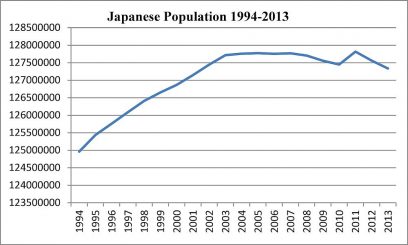
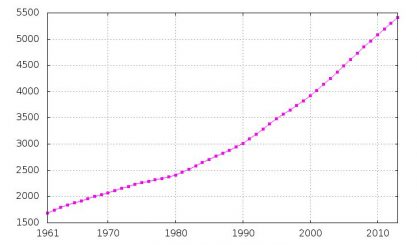
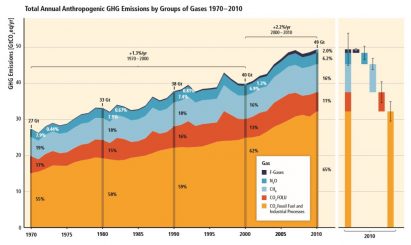
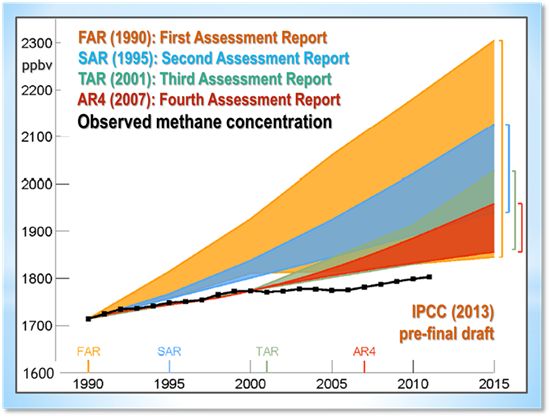
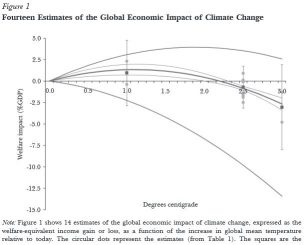




Sites we love
Buen artículo. El problema es que conociendo la política y el funcionamiento de los poderes públicos, si te hicieran caso tendríamos el impuesto al carbono Y todas las puñeteras regulaciones sobre eficiencia energética al mismo tiempo. Es un poco como quienes proponen la renta básica universal a cambio de eliminar pensiones públicas, subsidios de paro y todas las demás transferencias de dinero vía impuestos.
Efectivamente, como dije incluso antes de poner el impuesto ya hay regulaciones totalmente redundantes. Imagínate todo el lío que ha habido en esta web y en otras con las renovables: que si las subvenciones, que si realmente generan o no generan tanto, etc.
Y al final todo el dinero gastado en subvenciones daba igual, porque las emisiones de centrales eléctricas YA ESTÁN REGULADAS! Por el sistema europeo, el EUETS. Y si un país las reduce más de lo que pide ese sistema, eso simplemente va a llevar a que las eléctricas de otro país puedan comprar más derechos de emisiones… pa mear y no echar gota.
Esto lo han propuesto muchos economistas, y tiene todo el sentido, yo creo, SI quieres reducir las emisiones de CO2. Pero, sin entrar en las intenciones que tengan, el caso es que actúan como si hubiera otras cosas que les importan mucho más que las emisiones. Vaya, que las emisiones no les importa gran cosa, porque lo que hacen ya se ha demostrado que afecta muy poco a las emisiones.
El primero que yo recuerde proponiendo un simple impuesto a las emsiones, y nada más, fue McItrick.
Era mejor, porque relacionaba el impuesto con el calentamiento. Más calentamiento; más impuesto. No calentamiento; muy pequeño impuesto. Lo que además propiciaría un avance formidable en la ciencia. A la industria le interesaría saber lo que va a pasar con la temperatura, para avanzar lo que va a costar el impuesto.
Otra ventaja es que proponía una carga impositiva neutral. Lo que se recaudara del impuesto de CO2 se liberaba de otros sitios.
http://www.thegwpf.org/content/uploads/2013/07/McKitrick-Carbon-Tax-10.pdf
Pero es evidente que ningún político ni ningún alarmista climático aceptaría eso. Basar algo en la realidad es como una herejía o pecado en ese mundillo. Y MÁS impuestos es un por supuesto. Así que esta propuesta diferente, menos herética para los alarmistas, parece una alternativa razonable.
Sería interesante la opinión de economistas. Mi apuesta es que es totalmente implanteable. Por el horrible pecado de su transparencia ¡La gente se enteraría de lo que cuesta el cuento del clima!
Tiene guasa la cosa. Muchos «negacionistas» aceptaríamos un impuesto que inevitablemente reduciría mucho las emisiones (que están haciendo mucho bien), pero los supuestos creyentes del cuento no lo van a aceptar. Porque prefieren un sistema oscuro e incontrolable que no está reduciendo las emisiones. El mundo al revés.
No me acordaba de la propuesta de McKitrick. No lo he pensado mucho, pero tanto si es un impuesto de ese tipo como uno ‘arbitrario’ (digamos 50€/tonelada de CO2 + una subida anual) funcionarían mejor con la carga impositiva neutral, como dices. Más que uno ‘neutral puro’, en el que a cada persona se le devuelve una misma cantidad de dinero (o una en función del combustible que haya consumido). Suena muy de izquierdas para esta web pero lo cierto es que el impuesto al carbono iba a golpear más duro a los más pobres, que son los que mayor proporción de su sueldo gastan en calefacción y similar, así que sería una forma de mitigar esa subida de precios.
En cualquier caso, usar los fondos del impuesto para ‘invertir’ en otras historias estaría injustificado, porque la reducción de emisiones YA la lleva a cabo el impuesto en sí. Este es precisamente otro ‘problema’ de los programas cap and trade, que por supuesto para los políticos es una ventaja porque lo pueden gastar en los que les dé la gana. Véase el caso de California donde el programa de venta y comercio de derechos de emisiones ha acabado financiando el tren bala.
https://pedestrianobservations.wordpress.com/2014/07/02/california-hsr-should-not-have-been-funded-this-way/
Muchas gracias, Alberto.
Por cierto, muy bueno y muy bien desarrollado tu artículo. Ilustrativo, legible, con coña; lo tiene todo. Y en buenas proporciones. Enhorabuena.
Gracias! Me llevó cuatro o cinco horas escribirlo… y antes de eso un par de años leyendo.